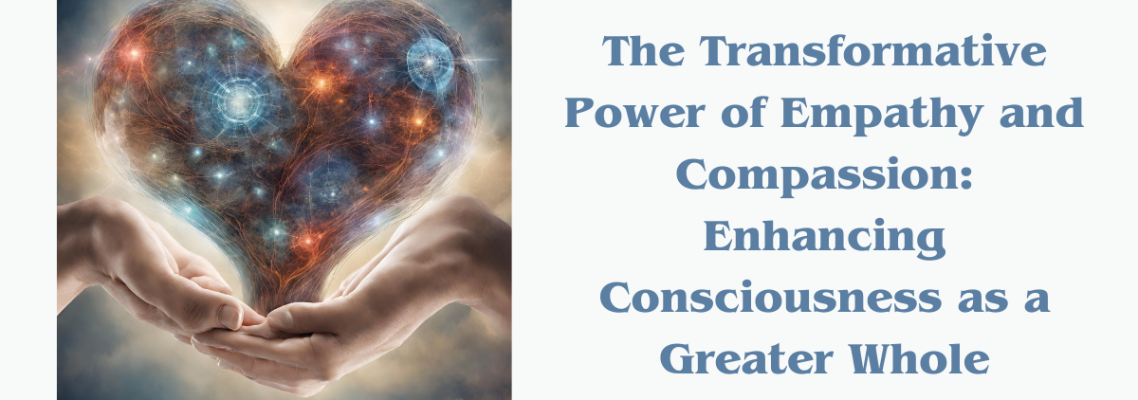
The Transformative Power of Empathy and Compassion: Enhancing Consciousness as a Greater Whole
2023-10-17
In a world that often feels increasingly fragmented and divided, the values of empathy and compassion stand as beacons of hope and unity. These qualities are not only essential for improving individual lives but also hold the power to elevate our collective consciousness as a greater whole. In this article, we will explore how empathy and compassion play a pivotal role in enhancing our shared awareness and fostering a more interconnected, compassionate, and conscious society.
Empathy and compassion are intrinsic to our human nature. They emerge from the profound understanding that we are all interconnected, sharing the human experience and the journey of life. Empathy allows us to feel and understand the emotions of others, while compassion motivates us to alleviate their suffering or promote their well-being. By nurturing these qualities, we tap into the wellspring of our shared humanity.
Empathy serves as a bridge between individuals, fostering deeper connections and bonds. When we empathize with someone, we put ourselves in their shoes, experiencing their joys and sorrows as if they were our own. This shared emotional experience breaks down barriers and reminds us of our commonality, transcending cultural, social, and racial differences. In this way, empathy opens the door to greater consciousness, reminding us that we are not isolated entities but integral parts of a complex, interdependent web of existence.
Compassion is the natural response to the suffering of others. It compels us to take action to alleviate that suffering, whether through kindness, support, or understanding. Compassion enables us to become agents of healing in a world often plagued by pain and discord. By practicing compassion, we actively contribute to the elevation of our collective consciousness. It is through these acts of kindness and empathy that we recognize our interconnectedness, further deepening our sense of unity.
The concept of collective consciousness suggests that we are all part of a greater whole, where our thoughts, emotions, and actions resonate and contribute to the shared human experience. Empathy and compassion amplify the harmonious vibrations of this collective consciousness.
- Social Harmony: Empathy and compassion foster social harmony by reducing conflicts and encouraging cooperation. In a society where these values are practiced, there is less room for division and discord. We begin to realize that the well-being of one person is intimately connected to the well-being of all.
- Inspiring Change: Compassion is a catalyst for social change. When we witness the suffering of others and respond with compassion, we take action to create a more equitable and just world. By doing so, we elevate our collective consciousness, striving for a society that values the welfare of every individual.
- Elevating Global Awareness: Empathy and compassion extend beyond borders, making it possible for us to empathize with the struggles of people from different cultures and backgrounds. This understanding leads to global awareness, prompting us to address issues such as poverty, environmental degradation, and human rights abuses on a global scale.
Empathy and compassion are not just emotions; they are forces of transformation. They connect us with one another on a deeper level and remind us of the innate goodness within each human being. By nurturing these qualities, we enhance our collective consciousness as a greater whole. In this conscious state, we are better equipped to address the challenges of our time with unity, wisdom, and love. As we weave empathy and compassion into the fabric of our society, we take a giant step toward a more harmonious and interconnected world.


Recent Comments